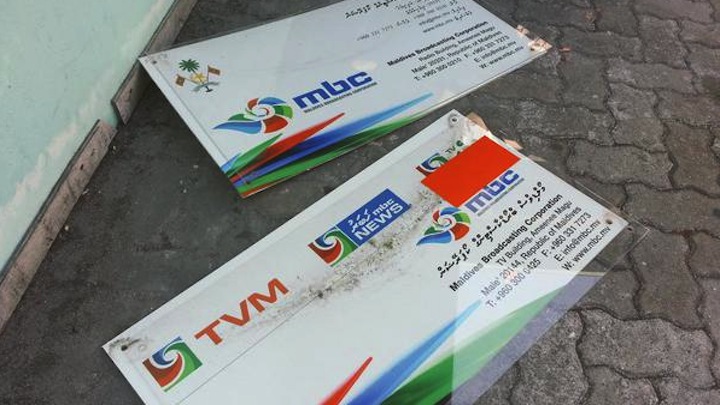The International Federation of Journalists (IFJ) has condemned the new public service media law as an attack on press freedom with the creation of a “state mouthpiece.”
The Maldives Broadcasting Corporation, which operated the state television and radio stations, was dissolved last week after President Abdulla Yameen ratified the Public Service Media Act, which replaced the state-owned corporation with a new state media company.
“The Maldivian media have faced a number of challenges from the government in recent months and this Act is another attempt by the Yameen government to control critics,” the IFJ said in a statement.
“The concept of the public broadcaster is to ensure balanced and ethical reporting in the public interest, however with the government controlling this, it will only serve as a propaganda tool.”
The IFJ’s local affiliate, the Maldives Journalist Association (MJA), said the law is “not in line with best practices and fundamentals of a public service broadcasting or media” and accused the government of seizing control of public service broadcasting.
“MJA believes the Maldives has gone back to the 80s and we condemn the controlling of media, especially the removal of public service broadcasting in the country,” the association said.
The pro-government majority parliament passed public service media (PSM) bill on Monday amidst protests by opposition MPs and approved the president’s seven nominees to the PSM governing board on Thursday without conducting interviews.
At the first meeting of the public service media governing board, Ibrahim Umar Manik was elected chairperson and former VTV CEO Ibrahim Khaleel was made managing director.
Manik told Minivan News last week that the law was a “positive move” that will improve the public broadcaster. Manik was also chairman of the Maldives Broadcasting Corporation’s board.
“We were not influenced before and I am very confident that we will not be influenced by the government in the future as well,” he said.
Ibrahim Hilmy was meanwhile elected vice chairperson of PSM and former VTV presenter Mohamed Ikram and Aminath Shayan Shahid were appointed deputy managing directors.
During last week’s parliamentary debate, ruling party MP Riyaz Rasheed said one of the reasons the government had to form a new state media company was because the previous state broadcaster provided live coverage of an underwater protest calling for the release of ex-president Mohamed Nasheed.
However, TVM had not covered the event.
Riyaz also criticised the state broadcaster for not providing enough coverage of the government’s development projects, the president’s overseas trips, and state ceremonies.
Government officials were only invited to programmes because opposition politicians were refusing to appear, he claimed.
The new law also requires the state to distribute a printed daily newspaper and use social media to disseminate programmes.
The PSM board said in a statement on Thursday that Television Maldives (TVM) and the radio station Dhivehi Raajjege Adu will retain its brand names until the board decides otherwise.
The state broadcaster will also follow the former corporation’s policies until new policies are formulated, it added.
Parliament approved a monthly salary of MVR25,000 for the managing director in addition to an MVR15,000 living allowance and an MVR1,000 phone allowance. The chairperson and vice chairperson will receive MVR15,000 and MVR13,000, respectively, as living allowance, while other members will receive MVR10,000.
